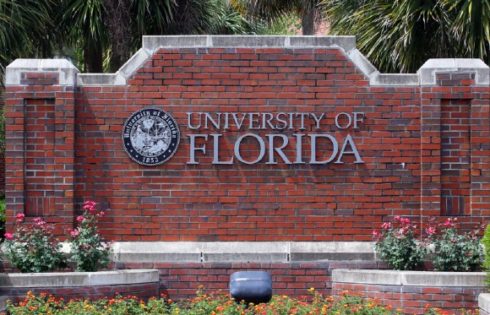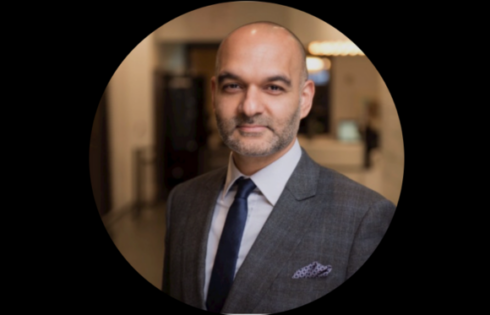
Would you have expelled a Black Lives Matter activist to protect ‘1000 whites’?
So far, one federal appeals court has issued a ringing endorsement of the right to gender-neutral treatment in campus Title IX proceedings.
If one judge’s comments during oral argument last week are indicative, the 6th U.S. Circuit Court of Appeals will join its sibling 2nd Circuit, which last year reinstated an anti-male bias lawsuit against Columbia University.
The 6th Circuit was hearing a case against Ohio’s private Denison University, which expelled a male student after his female sex partner accused him of nonconsensual sex stemming from another male student spiking her alcoholic drink with a date rape drug at a party.
Though the female had left the party to join “John Doe” in his room, and multiple witnesses testified she didn’t appear incapacitated, she accused Doe of rape via incapacitation – only after claiming the partygoing male (“Man Bun”) had retaliated against her for saying he drugged her.
Denison had been under federal investigation for Title IX violations nearly a year when the female accused Doe, whose lawsuit claims the university created “a gender biased, hostile environment against males” by disciplining them when they “accept physical contact initiated by female students.”
The trial judge threw out the suit on the grounds that the 6th Circuit doesn’t recognize a “deliberate indifference” category of Title IX claims and Doe didn’t show a “particularized causal connection” between his gender and the claimed “erroneous outcome” of his proceeding.
(Doe was actually expelled twice. Denison convened a second hearing panel following an unnamed “procedural irregularity” in the panel that expelled him, and it followed suit. Doe claimed that irregularity, which Denison refused to name, was the first panel’s illicit use of his information protected by federal student privacy law in deciding his expulsion.)
‘You have to make a determination of guilt before you take into account the future’
But Judge Amul Thapar of the 6th Circuit, an appointee of President Donald Trump, so thoroughly eviscerated Denison’s lawyer that he may bring along another judge who was mostly quiet during oral argument, delivering a 2-1 panel ruling in favor of Doe.
Brooklyn College Prof. KC Johnson, co-author of The Campus Rape Frenzy, gives a recap of the argument with several audio clips that suggest the school’s adjudication of Doe will be found unfair.
As did the 2nd Circuit last year, Thapar rebuffed Denison lawyer Natalie McLaughlin for implying that Denison can get off the hook for discrimination against males by claiming that it might get sued by female accusers as well.
“Counsel, universities have a tough road to hoe but what they can’t do is discriminate, whether it’s against whites, blacks, women, men,” he said.
Thapar faulted the trial judge for not “looking at the totality of facts and drawing inferences in the plaintiff’s favor,” as courts are required to do when evaluating a motion to dismiss: “This is where the district court erred.”
Prof. Johnson notes an alleged “off-the-record statement” by the chair of Denison’s first Title IX panel, Kristan Hausman, that the panel must keep in mind the “future of 1000 girls” as it weighs the case.
Judge Thapar lit into McLaughlin (keep in mind the panel has to accept Doe’s factual claims as true at this stage of litigation):
This “1000 girls” comment, had it been a Black Lives Matter defendant who assaulted a white male, and [the panel] said we have to take the safety of our 1000 white students into account, we [judges] would lose our minds here. If you were up here trying to defend that comment, we would lose our minds.
After McLaughlin said Hausman was simply reflecting “consideration of the safety of other people who could be at risk,” Thapar pressed her to answer the question:
You’re saying that we could not say that the university was acting discriminatorily if they said “we need to take into account the safety of a thousand whites when we have a black defendant”?
McLaughlin disagreed, saying a “white-on-black assumption is a different situation.” Thapar then asked her to consider the question about white safety if the accused student were Asian.
The judge noted that Hausman’s alleged statement to the panel – reported by an anonymous source who fears administration retaliation – came before it had rendered a verdict:
You have to make a determination of guilt before you take into account the future, but if you’re taking into account the future before you’ve made a determination of guilt, you’re prejudging the case because of the person’s gender or the person’s race.
‘That is feeding into what the plaintiff’s saying: The university’s just out to get males’
Thapar was baffled by McLaughlin’s continuing attempt to insinuate that the female campus population would be endangered by a male student whom the panel had exonerated:
I get it if you find him responsible [for sexual assault]. It’s your comment, ‘if you don’t find him responsible, you’re still putting people at risk’ [that perplexes Thapar]. How can that be?
The judge parried McLaughlin’s attempt to change the subject, saying she seemed to concede that the panel had “predetermined his guilt. … That is feeding into what the plaintiff’s saying, which is the university’s just out to get males.”
Seeing that she had no way out of this trap, McLaughlin said there was no evidence the rest of the panel showed gender bias toward Doe, and such panels are “entitled to a presumption of impartiality.”
But according to Prof. Johnson, this stirred up the heretofore silent Judge Eugene Siler, appointed by the first President George Bush: “Is the plaintiff claiming a bias on the part of one of the hearing officers? That’s just what you said.”
MORE: Title IX ruling for accused student: ‘more litigation, more settlements’
McLaughlin expanded her argument to say the panel ruling went through two layers of appeal – an appeals board and Denison’s president – and said no evidence suggested they were biased, either.
Judge Thapar then questioned the very basis of her argument, that appeals upholding a trial finding – “the fact determiner” – somehow wipe away bias at the trial level. Appeals panels generally don’t review the facts as determined by the trial body, in this case the hearing panel.
The likely vote in favor of the university – Bill Clinton appointee Judge Helene White – gave a nudge to McLaughlin to suggest that the “1000 girls” comment meant something else:
If we don’t get these types of cases right [correctly identify student sexual predators], a thousand women are at risk from an array of men?
But McLaughlin didn’t play along, saying of the “1000 girls” comment: “I don’t believe that there’s any indication that that comment was made to relate to” White’s theory.
Read Johnson’s post, Doe’s lawsuit and the trial ruling.
MORE: Presume students guilty because high schools can ban long hair?
IMAGE: vchal/Shutterstock
Like The College Fix on Facebook / Follow us on Twitter






Please join the conversation about our stories on Facebook, Twitter, Instagram, Reddit, MeWe, Rumble, Gab, Minds and Gettr.